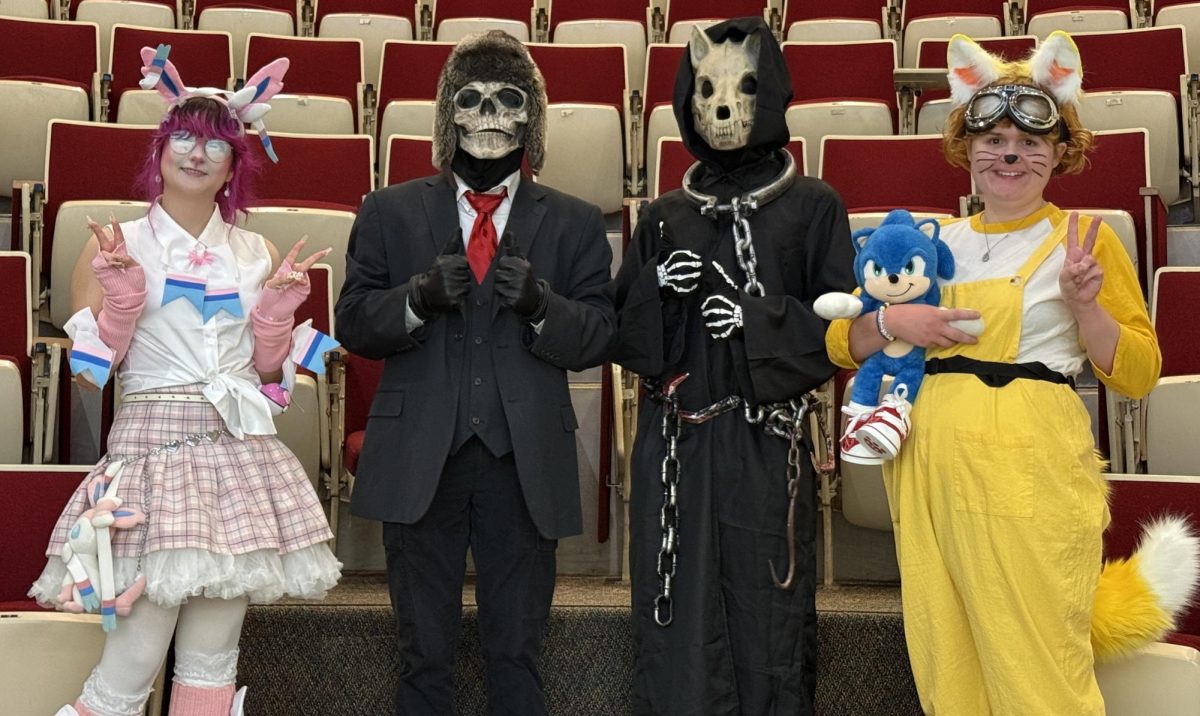Evey King
News Staff Writer
[email protected]

Photo by Dusty Albinger
The students and staff at UNC Asheville recently came together in an open discussion on justice and racial equity The discussion was facilitated by Paul Gorski, the director of the Equity Literacy Institute. According to Gorski, the goal for this event was to get everyone engaged in a meaningful conversation over racism and anti-racism.
“I don’t think we can make a big leap of progress on racism if white people only see racism as something that happens between two people instead of an institutional pattern of things happening,” Gorski said.
Gorski admitted that the hardest spaces to critically discuss racism are those with a high concentration of white liberals, or well intentioned white people. He mentioned the main tenets of understanding how racism operates in white liberal spaces, which includes white fragility and seeing whiteness as a property.
“The most important thing, especially for white people, is to learn to understand racism in more deep and complex ways. Part of the challenge is a lot of white people see racism as ‘I call you a name’ or telling a racist joke; those interactional things that one person does to another. But to learn and to see racism as that as well as subtle things like microaggressions, implicit bias and policies and practices that benefit white people at the expense of people of color, even if they weren’t designed to do that,” Gorski said.
During the discussion, attendees were encouraged to voice their thoughts and opinions regarding the racism they notice or experience on campus. Students and staff mentioned that they believe there is prevalent problem with racism in the education system, specifically a gap between minorities and the privileged. Other points discussed were the lack of faculty of color, as well as the tokenizing of people of color in the university’s marketing campaigns and how these were not a reflection of the actual demographics of the student population.
But Gorski encouraged those in attendance to consider the more positive aspects of how UNCA deals with racism on campus. People mentioned the fact that they were having this conversation was evident that there was a willingness for change. Others mentioned the programs and diversity initiatives that the university has implemented. To Gorski, the programs and dialogue are not enough.
“Usually universities have loads of programs. The problem is that they are doing a lot of programs and not other things. I think the lack of of diversity in faculty and staff is a problem,” Gorski said. “The biggest issue, whether it is enabling the university to make progress or inhibit the university from making progress is the knowledge, will and commitment of leadership and upper-level leadership.”
Gorski emphasized the importance of acknowledging and celebrating those who champion social justice and to protect them from the blowback from telling the truths that other people aren’t willing to tell.
“When people of color express how they are experiencing the institution, the best thing you can do to make change is believe what they say and be responsive and willing to change the institution based on what they say,” Gorski said. “The goal is to create an institutional culture where the most outspoken feel like they are at the center of the culture and the people who are the least engaged feel like perhaps this isn’t the place for them.”
James Perkins, an assistant professor in physics at UNCA attended the event and said he felt inspired by the discussion to implement changes in his own classroom.
“I’m already thinking about opening my class with a statement of letting students know that this is an anti-racist course that will be actively working to identify and eliminate racism in my classroom, even if its a physics course,” Perkins said.
What stood out to Perkins most during the discussion was critical race theory and the concept that anything not directly identifying and eliminating racism is serving the people who are creating this problem. Perkins said he is aware that there is a problem regarding race on campus.
“The one that I have been seeing is the unwillingness to believe people of color and valuing their statements differently than others,” Perkins said. “I think in general this is something that is important to all the professors. My post as a coordinator of humanities 324 means that these are ongoing issues.”
Most of those partaking in the discussions were students. Tess McCaleb, an international studies student at UNCA, decided to attend because she was interested in hearing Gorski speak about these issues.
“I read that he had a background in education and that he wrote a lot of books on how to teach students in poverty and to work on bridging the gap,” McCaleb said.
McCaleb found the problem she sees most is the under-representation of students of color on campus. She was also interested in the perspectives of the staff in attendance at the discussion.
“I hear a lot of the student perspective of social justice on campus but you don’t always get the view of the faculty and staff. So that was very interesting to see both of those come together in one space,” McCaleb said.
McCaleb says that she hopes there are more discussions like this in the future and that she wants to continue to be part of them.
“I felt like I learned a lot of things. There was a lot of information. I hope everyone in the room listened,” McCaleb said.


















